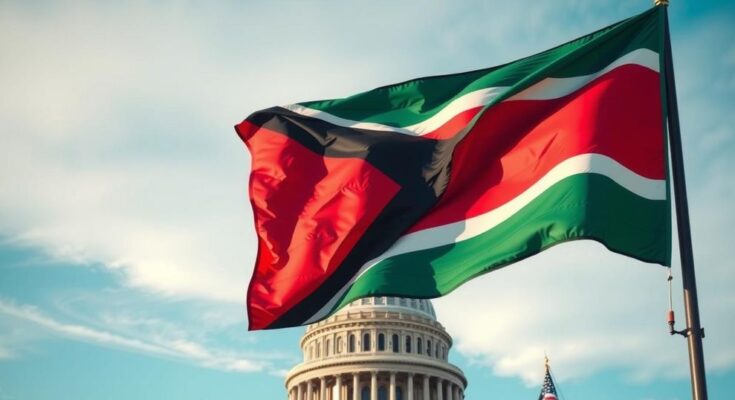U.S. Secretary of State Marco Rubio declared South Africa’s ambassador Ebrahim Rasool persona non grata, citing his alleged anti-American sentiments. This development reflects escalating tensions in U.S.-South Africa relations, exacerbated by controversial land reform policies in South Africa and critiques from Trump and Musk regarding discrimination against White farmers. Rasool’s comments targeting current U.S. political dynamics contributed to the diplomatic rebuke.
On Friday, U.S. Secretary of State Marco Rubio declared that South Africa’s ambassador to the United States, Ebrahim Rasool, is “no longer welcome in our great country.” Rubio characterized Rasool as a “race-baiting politician” expressing disdain for America and President Donald Trump. This severe diplomatic action, known as declaring someone persona non grata (PNG), indicates an absence of willingness to engage in dialogue with Rasool.
The decision to label Rasool PNG underscores the deteriorating U.S.-South Africa relationship, exacerbated by recent political tensions. The deterioration has been particularly evident during the Biden administration but has intensified with Trump’s return to prominence in U.S. politics, leading to various punitive measures against South Africa. Allegations against the South African government regarding discrimination against White farmers have intensified these tensions, with prominent figures like Trump and Elon Musk voicing their concerns.
In Rasool’s statements, which provoked Rubio’s comments, he discussed the impacts of current U.S. political dynamics and the perceived supremacy movements spurred by Trump. He argued that shifts in the demographics of the U.S. electorate contribute to resistance against incumbent power structures. Rasool emphasized the need to understand underlying factors driving these sentiments, advocating a nuanced discussion about contemporary political issues.
Addressing deeper societal issues, Rasool linked recent far-right political activities with historical grievances experienced by Afrikaners and the projection of White victimhood. He recalled the Expropriation Act passed in South Africa earlier this year, which aims to redistribute land among its majority Black population, highlighting the profound legacy of apartheid. This law grants the government authority to seize land deemed necessary for public interest, often sparking outrage in international relations.
President Cyril Ramaphosa stated that the Act aims to rectify historical inequities despite pushback from entities like the U.S. government, which perceives the policy as discriminatory against White citizens. Rubio has previously condemned South Africa’s land policies and expressed his commitment to protect American interests from perceived anti-Americanism. In response to these dynamics, Trump has suspended aid to South Africa, asserting a commitment to help those fleeing alleged race-based discrimination in land ownership issues.
In conclusion, Secretary of State Marco Rubio’s declaration that South African ambassador Ebrahim Rasool is persona non grata highlights the growing diplomatic tensions between the United States and South Africa. The complex backdrop includes contentious land reform legislation in South Africa, allegations of discrimination against White farmers, and broader global political dynamics involving historical legacies of apartheid. The ongoing friction reflects deeper ideological divides, signaling a challenging path ahead for U.S.-South African relations.
Original Source: www.cnn.com




